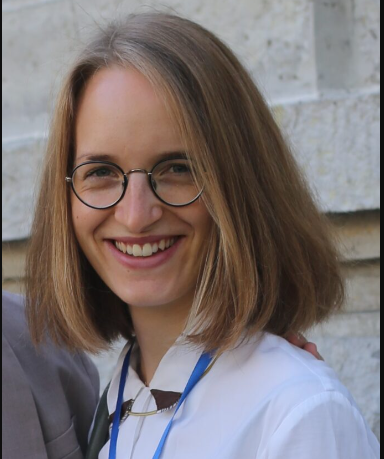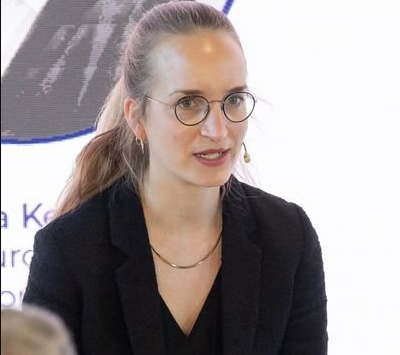Lydia wachs lebenslauf : Researcher Lydia Wachs works for the Berlin-based think tank Stiftung Wissenschaft und Politik (SWP). There, she is doing research on nuclear policy, with an emphasis on Russia, and contemporary challenges and security concerns for Germany and Europe as part of the project “Strategic Threat Analysis and Nuclear (Dis-)Order.


Before, she researched nuclear strategy at the Royal United Services Institute (RUSI) in London, Britain. She took courses in “Arms Control and International Security” at King’s College in London and “International Relations” at universities in Dresden and Saint Petersburg. This past semester I spent in Saint Petersburg, Russia.
My next goal was to get an internship in a post-Soviet or Russian-speaking country.About two years ago, I developed an interest in Kazakhstan. The film “FAR. The Story of a Journey Around the World,” which follows a couple as they embark on such an adventure, proved to be the deciding factor. There’s a moment when a truck driver picks them up in Kazakhstan.
The way they navigated the steppe with their vehicles captivated me. While in Saint Petersburg, I was also involved in political activities in Central Asia. All of this has piqued my curiosity about the nation. I was working in the division that dealt with media, politics, and culture. I was tasked with investigating pressing issues affecting ties between Kazakhstan and Germany. I was able to keep up with the Kazakh media .
thanks to the fact that I can read publications written in both Russian and Kazakh. Moreover, I was welcomed into the diplomatic community and given permission to participate in foreign conferences. This was a great introduction to the diplomatic process. When you were in Kazakhstan, what were some of the main things you discussed? The Germans in Russia were one of the topics discussed.
At the embassy, I conducted a fair lot of study on the topic. Since I had previously come upon the subject in Saint Petersburg, I found this to be a really intriguing coincidence. At reality, I met former Gulag survivors as part of my work in the NGO Memorial, which works with the historical processing of Stalin’s repressions. The final person I ran across was a Russian German, which is ironic.

I was deeply affected by her biography: she was transported to Kokshetau in Kazakhstan and lived there under the harshest circumstances. I first learned about what happened to Germans in Russia and Kazakhstan in this setting. In general, the subject of identity then stayed with me: both in respect to the identity of Kazakhstan Germans and Kazakhstans. It was quite intriguing to draw the connection with Germany and the topic of what function nationality has in identity development.
Lydia wachs biographie
NATO’s doctrine of deterrence includes the notion of “nuclear sharing,” which allows member nations without their own nuclear weapons to participate in target planning and use of weapons. The transatlantic alliance, which also considers itself a “nuclear alliance,” has thus far sought to prove, through the concept of nuclear sharing, that the United States is able and willing to join European NATO member states that.
are threatened by these weapons but do not have their own nuclear deterrent. Participating nations in nuclear sharing have a voice in key bodies and determine whether or not they have the technical criteria for the use of nuclear weapons, such as adequate aircraft or missile carrier systems, and whether or not US nuclear weapons are housed on their territory. Participating governments have access to nuclear.
weapons operated by the United States in the event of conflict. Lydia Wachs attended King’s College London to study “Arms Control and International Security” after completing her undergraduate work in international relations at the universities of Dresden and St. Petersburg. She was a research assistant at the Royal United Services Institute in London studying nuclear policy from 2019 to 2020. She has been .
working at the SWP Foundation since 2020, initially focusing on the regulation of autonomous weapons systems. Since 2021, she has been a researcher at the SWP, where she has been working on the project Strategic Threat Analysis and Nuclear (Dis-)Order to study nuclear policy, focusing particularly on Russia but also considering other contemporary threats to Germany and Europe.
Until they are used, the nuclear weapons held in the allied countries should stay under US authority, whether the conflict is peaceful or not. The essential codes are only known by the highest level US officials and are held in the highest secrecy. However, the partner state ultimately has a de facto power of veto since the deployment is its duty and is carried out using its armed systems.
Lydia wachs vermogen
not available
